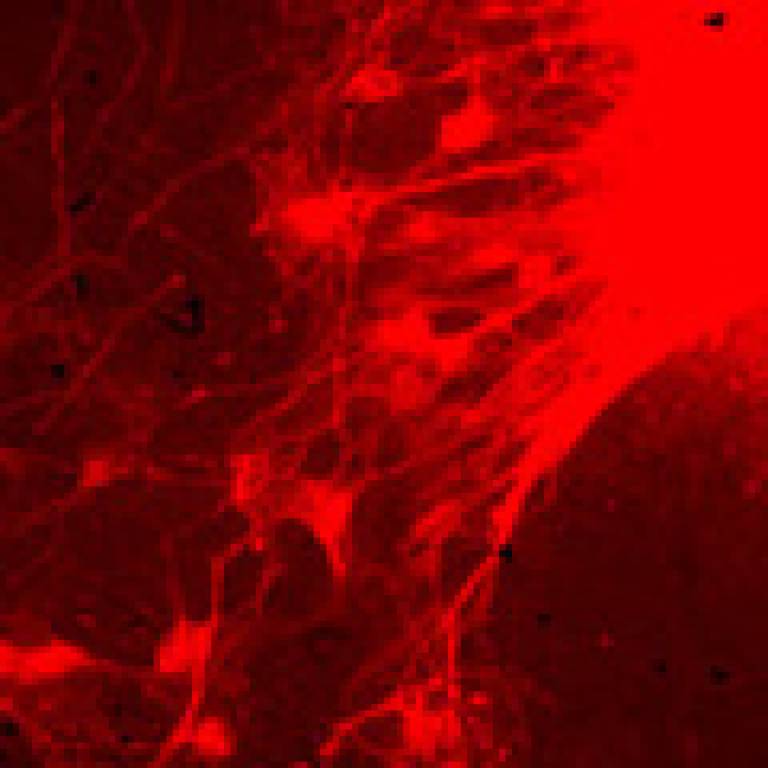Stem cell research awareness day
22 September 2009
Links:
 ucl.ac.uk/stemcells/" target="_self">UCL Centre for Stem Cells and Regenerative MedicineUCL iPSC working group membersUCL podcasts: Stem cell research - the science, the methods and the applications
ucl.ac.uk/stemcells/" target="_self">UCL Centre for Stem Cells and Regenerative MedicineUCL iPSC working group membersUCL podcasts: Stem cell research - the science, the methods and the applications
UCL will this week mark Stem Cell Awareness Day (23 September) in a tradition honoured within research universities across the world.
UCL's work in the area of stem cell research is constantly evolving. Last month UCL scientists discovered nano-magnets that can guide stem cells to damaged tissue. Using microscopic magnetic particles to bring stem cells to sites of cardiovascular injury, this new method has been designed to increase the capacity of cells to repair damaged tissue. Although magnetic fields have been used to guide cellular therapies in the past, this is the first time cells have been targeted using a method directly applicable to clinical practice.
Stem Cell Awareness day is organised by the California Institute for Regenerative Medicine and aims to foster greater understanding about stem cell research and the range of potential applications for disease and injury. To find out more about UCL's stem cell research go to the suite of podcasts at the link above. These include:
- Professor Claudio Stern (Chair of the UCL Centre for Stem Cells and Regenerative Medicine Steering Committee) describing the science of stem cells which can change themselves into healing cells and cancer cells alike.
- Professor Martin Birchall (UCL Ear Institute) on why he went into ear, nose and throat surgery, the ethics of transplantation and the processes behind the first stem cell windpipe transplant.
- Professor Chris Mason (Advanced Centre for Biochemical Engineering at UCL) considering the benefits of stem cell research and the potential impact of President Obama's reversal of the ban on US federal funding for human embryonic stem cell research.
- Professor Pete Coffey (UCL Institute of Ophthalmology) discussing treating age-related macular degeneration through stem cell therapy and his work at the London Project to Cure Blindness.
UCL context
The UCL Centre for Stem Cells and Regenerative Medicine brings together more than 150 research groups from several faculties, specialised hospitals and institutes across UCL - including the MRC National Institute for Medical Research (NIMR) - with a common interest in all aspects of stem cells, tissue engineering, repair and regeneration and the development of their therapeutic and biotechnological potential.
Related news
Nano-magnets guide stem cells to damaged tissue
 Close
Close

